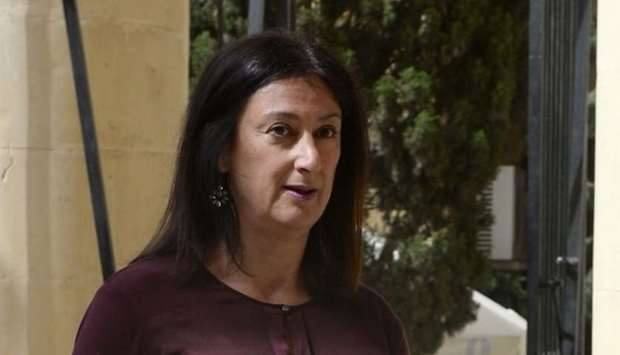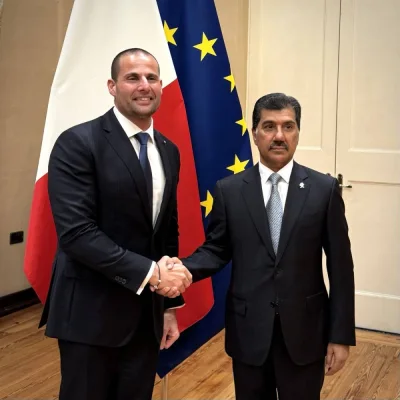Maltese authorities on Monday arrested 10 people in connection with the killing of a whistle-blowing journalist that turned an international spotlight onto crime and corruption on the Mediterranean island.
Daphne Caruana Galizia, who died when her car was blown up on October 16, was one of Malta's most prominent public figures, thanks to a widely read blog she used to expose the murky underbelly of the economically booming island nation.
Her most explosive reports included allegations that members of Prime Minister Joseph Muscat's inner circle benefited from kickbacks from major business deals and a controversial passports-for-investment scheme.
But the 53-year-old also focused on alleged dubious behaviour by prominent opposition and business figures, fuelling speculation she could have been the victim of mobsters as easily as a political vendetta.
Muscat said all the suspects were Maltese and some were known to the police. The Times of Malta identified two of those arrested as brothers Alfred and George Degiorgio, describing them as members of a criminal gang.
Muscat said a joint team of police, military and security services made the arrests following a nearly seven-week investigation carried out with help from the FBI, Europol and Finnish intelligence.
Caruana Galizia's murder led to an outpouring of grief on Malta and an international outcry.
Sven Giegold, a German Greens lawmaker who was part of a European Parliament delegation which visited the island last week, welcomed the arrests as ‘good news,’ but warned on Twitter they must not be used as ‘a fig leaf for not investigating cases of corruption and money laundering in Malta.’
The MEPs left Malta expressing serious concern over the rule of law in the EU's smallest member state.
- PM's biggest adversary -
Muscat announced the arrest of eight of the suspects in a statement and then added in a Twitter post that two more had been detained.
The statement said the suspects had been arrested on the basis of ‘reasonable suspicion in connection with involvement in the murder’ of Caruana Galizia.
Under Maltese law, they can be interrogated for 48 hours before a decision must be made to prosecute or release them.
Muscat would not comment on whether the detained men were suspected of carrying out the killing or instigating it, or if a motive had been established, saying he could not risk prejudicing a potential trial.
The premier, who had described Caruana Galizia as his biggest adversary, reiterated his commitment to bringing her killers to justice.
‘As I stated as soon as I learnt about this barbaric act, we will leave no stone unturned to get this case solved,’ he said.
- 'Mafia-style killing' -
Muscat's Labour Party government had offered a one million euro ($1.2 million) reward for information leading to a conviction of Caruana Galizia's killers.
Her sons denounced the reward as a publicity stunt and called on Muscat to resign over the state's failure to protect their mother and his attempts to silence her through legal suits when she was alive.
In her final post on Running Commentary, the blog she had written since 2008, Caruana Galizia voiced despair over the cronyism and sleaze she saw engulfing Malta.
‘There are crooks everywhere you look now. The situation is desperate,’ she posted minutes before the fatal blast.
Much of her recent work had been centred on what the huge Panama Papers data leak revealed about corruption at the highest levels in Malta.
Since her death, an Italian prosecutor investigating suspected mafia fuel smuggling from Libya to Italy via Malta has suggested the murder could be linked to his case, which Caruana Galizia had written about.
Antonio Di Pietro, a veteran of Italy's anti-corruption battles, has described the journalist's killing as ‘a classic mafia-style homicide’ designed to send a warning signal.



